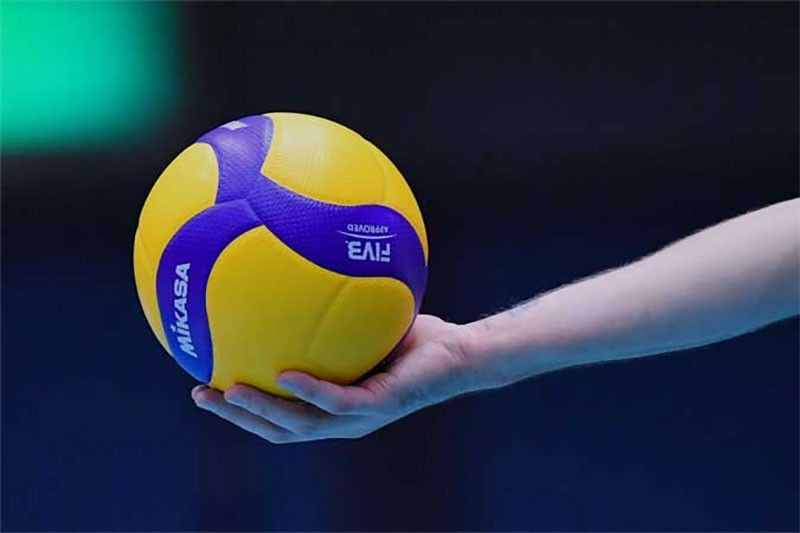
The Witcher Recap: The Last Unicorn
Season 3 Episode 7 Editor’s Rating4 stars ****
Photo: Jay Maidment/Netflix/Jay Maidment By the time the credits roll on “Out of the Fire, Into the Frying Pan,” we are a single hour away from a post–Henry Cavill version of The Witcher. Given that Netflix made a big deal out of simply introducing Cavill in all his silver-haired glory back in 2018, this could be something of an existential crisis for the show — even with Liam Hemsworth in the wings. What is The Witcher without its original witcher?
This episode offers one convincing answer: a show about Ciri. While Geralt spends the episode recovering from the brutal beatdown he received from Vilgefortz, Ciri wakes up from her trippy ordeal at Tor Lara and realizes she has been teleported into the Korath desert. She is parched, delirious, and apparently hundreds of miles away from anything even resembling civilization.
“Out of the Fire, Into the Frying Pan” is a worthy showcase for Freya Allan, who emerged as The Witcher’s most promising secondary lead over the course of season two. Often the only character on-camera, she anchors what is essentially The Witcher’s version of Cast Away, sucking dew from rocks in the twilit morning, killing a lizard and eating its eggs, and doing her best not to go insane in the unforgiving heat of a seemingly endless desert.
On that last count, she doesn’t entirely succeed — though, as always on The Witcher, it’s not clear whether some of her “hallucinations” are actually magical encounters or prophetic visions, for better or for ill. Like Ebenezer Scrooge in A Christmas Carol, Ciri is visited by three spirits: Pavetta, Calanthe, and Falka. (Oh, and a unicorn. We’ll get to that later.)
Pavetta, conveniently enough, represents Ciri’s past. She died in a shipwreck when Ciri was still an infant, so you’d think this mother-child reunion would be a happy one. Instead, this hallucinatory Pavetta is cruel, calling Ciri “a heavy weight to bear” and insisting that Geralt and Yennefer will be relieved she’s not their problem anymore.
This is, in all likelihood, Ciri’s brain grappling with her own feelings of guilt and inadequacy. You could say the same regarding a similar appearance from her grandmother, Calanthe, who cackles at Ciri’s pain and misfortune even as Ciri rails against this woman she loved, lamenting the role she played in creating the horrible, war-torn world Ciri is now forced to live in. (Yes, there’s a real millennial-versus-boomer dynamic to this whole exchange.)
But Ciri’s encounters with her third visitor are both more interesting and more complicated to parse. In her first appearance, a hooded female figure draws Ciri into a dark room and says, by way of introduction, “I am the past, and this is the future. Well, a possible one.” She speaks vaguely about how she killed her father before meeting a violent death herself — as, she notes, many other women who tried to change the world have: “How many more times will history have to repeat itself?”
On her second appearance, the hooded figure introduces herself as Falka, a Redanian princess notorious in Continental history for killing her family and leading a bloody rebellion after being disinherited from the throne in favor of her half-brother. “You want to change the system, Princess Cirilla? Burn it to the ground,” she counsels. She suggests using fire magic — which you’ll probably recall Yennefer using in the season-one finale with dire consequences — to do it.
Between these visions, Ciri is guided through the desert by an actual unicorn, which she names Little Horse. Little Horse saves Ciri from drinking a “puddle of water” that turns out to be the open maw of a desert creature attempting to devour her; Ciri, in turn, beats another buglike monster to death after it leaves Little Horse critically wounded.
It’s in this moment that Ciri has a choice to make. As Falka counsels, she uses the fire magic to heal the unicorn; as she surely doesn’t expect, the unicorn immediately flees her in fear of the power she has unleashed. Her subsequent vision, in which Falka calls her wrath “righteous” and her revenge “justice,” features the corpses of Cahir and Vilgefortz. But it also features Yennefer chained and Geralt drawn and quartered. A future in which Ciri fully realizes her power also means death for everyone else.
So she says she’ll relinquish her powers; when she awakens again, on the edge of the desert, some mercenaries are collecting her on the orders of a higher power. It’s not clear how much of her magic is left, but given the witcher skills she acquired at Kaer Morhen, it’s probably still a bad idea to even bet against a magicless Ciri.
It’s not until the end of the episode that we cut away from the Korath desert. Jaskier arrives at the edge of the Brokilon Forest and — after successfully wooing the dryads who live there with a song — is allowed to enter what turns out to be a refugee camp.
Despite the combined attention of the best healers on the Continent, Geralt seems to be in rough shape — enough so that Jaskier visibly winces when he sees him. But while Geralt can barely move, he is coherent enough to ask after Ciri. On that front, Jaskier has only bad news. Entire villages were razed in the hunt for the lost princess, who has apparently been found. Emhyr var Emreis has even issued a celebratory decree announcing that Ciri is on her way to Nilfgaard.
What can you say? In Geralt’s case, not much. Henry Cavill may have spent his penultimate Witcher episode almost entirely offscreen, but he does get to close this one out with a good angry Geralt grunt.
Stray Arrows
• This show has never been great at explaining the geography of the Continent, but a look at the map reveals that Ciri teleported well over a thousand miles from Thanedd to the Korath desert.
• Ciri’s lonely journey also gives her the chance to openly reflect on what she learned from a few old friends The Witcher hasn’t mentioned in a while: Mousesack, Coen, and Vesemir.
• I’m also glad the show found a way to bring back Jodhi May’s Calanthe, which remains one of the strongest and most layered performances in the entire series, even after she was killed in The Witcher’s first episode.
• If Netflix wants to keep spinning out its Witcher-verse, Falka’s rebellion sounds like some especially promising source material for a miniseries.
• And while it’s at it, why not a series on Ciri’s ancestor Lara Dorren, whose tragic life is also briefly mentioned by Falka?
• Add Jaskier to the list of characters now referring to the Geralt-Yennefer-Ciri triumvirate as his “family.”
• The elven ballad Jaskier sings to gain the trust of the dryads is “Elaine Ettariel,” which was also featured in 2007’s The Witcher video game.
• And the ballad sung by Ciri over the closing credits (and by Jaskier in “The Invitation”) was composed by Jaskier in Andrzej Sapkowski’s short story “A Little Sacrifice” — a “Little Mermaid” riff that will apparently be adapted into the next Witcher anime movie.
• Look — this genre existed long before Game of Thrones, but as it remains TV’s fantasy torchbearer, I’m not sure I’d have written Falka referring to “blood and fire” and had her give a speech about “breaking the wheel.”
VULTURE NEWSLETTER
Keep up with all the drama of your favorite shows!This site is protected by reCAPTCHA and the Google Privacy Policy and Terms of Service apply. Vox Media, LLC Terms and Privacy Notice
<
p aria-hidden=”true”>By submitting your email, you agree to our Terms and Privacy Notice and to receive email correspondence from us.































![iFi's GO Bar Kensei Dongle DAC Supports K2HD Technology With Some Samurai Swagger [Updated] iFi's GO Bar Kensei Dongle DAC Supports K2HD Technology With Some Samurai Swagger [Updated]](https://i0.wp.com/cdn.ecoustics.com/db0/wblob/17BA35E873D594/33FF/45A11/QTXOLJR4xDKSNMMk2WlTgjaIlvSgcYpeU1xJzUwIoYs/ifi-go-bar-kensei.jpg?w=768&ssl=1)

























